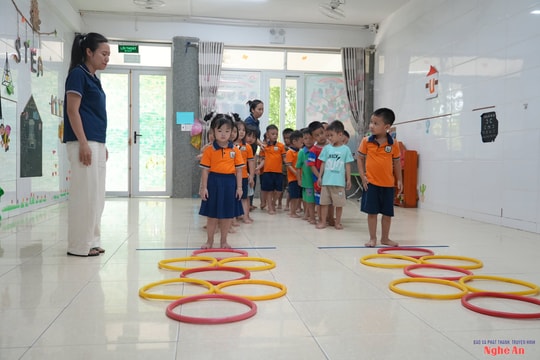9 things parents should do to help children be more resilient in the new year
Instead of controlling, parents should step back a bit, support children when needed, teach them to encourage themselves and empathize with them.
There is a common thinking among parents that failure builds resilience. But when children fail over and over again and are not supported to keep trying, all they learn is failure. To help your child become resilient, you can follow the suggestions below from experts ofMotherly.
1. Stop controlling and start supporting
As a parent, you need to support your child in developing skills. Doing everything for them means you are robbing them of the opportunity to be competent. Instead, gradually let go of the need to control and start supporting and working with them when needed to help them build confidence.
2. Remember that perfection is not the goal
Don't expect your child to be perfect, but look at their weaknesses and help them improve. Interfering and pressuring your child to be perfect will undermine their self-confidence.
|
Image:Mum Central |
3. Take a step back and let your child do something for themselves from a young age.
You don’t always have to stand by your child and help them, sometimes you have to take a step back. Worrying about your child when they climb on something on the playground may make you feel better and impress other parents with your thoughtfulness, but it doesn’t help your child. In fact, it limits them.
Instead, watch your child try to stay safe, stand behind them and smile proudly. When they have a hard time but you feel they can overcome it, encourage them with words like "I know you can do it". If they accidentally fall, run to them and pick them up so they still feel loved and cared for.
4. Don't actively push your child closer to failure.
Discouraging your child from taking on a challenge prevents them from learning important lessons. But when children see their parents stand by and let them fail, they can feel unloved. So if the challenge is clearly too much for your child, think twice.
5. Encourage and teach children to encourage themselves
Encouraging your child will help them feel more positive and motivated, which will help them to be more self-motivated. You can also give your child some mantras that they can repeat to themselves when they are having difficulties, such as: "Practice makes perfect" and "If you don't succeed, try again" or "I think I can, I can".
6. Be descriptive and empathetic rather than judgmental.
You often give praise like “Good job” when evaluating your child’s performance. In fact, it doesn’t give your child much information about what went well or why you think it went well. So, tailor your praise to help your child identify strengths and weaknesses to improve and become better, and help them self-evaluate.
In addition, you should also show empathy for what your child feels. Combining that empathy with words of encouragement will help them become more resilient to overcome challenges.
7. Focus on effort, not results
It is important to praise your children. However, instead of saying “good job” or “smart job”, you should give positive feedback on their hard work and perseverance. These are things that children can control and develop.
In particular, you need to understand that it’s not about the product. You don’t want your child to rest on their laurels at age 6 or 16. Your goal is to keep them trying, practicing, improving, and helping them understand that hard work will accomplish anything.
8. Don't make your child more frustrated
There is no benefit in setting up your child for further frustration or negative experiences. In fact, they will see your actions as evidence of a lack of interest. So, don't do anything to add to their frustration, let the challenges run their course.
9. Affirm your child's abilities
Eventually, children will grow up and live their lives without their parents. So, don't worry too much and control your children all the time when they are young. Instead, create conditions and opportunities for your children to see their abilities, thereby gaining more confidence and resilience in the future.



.jpg)
.jpg)




